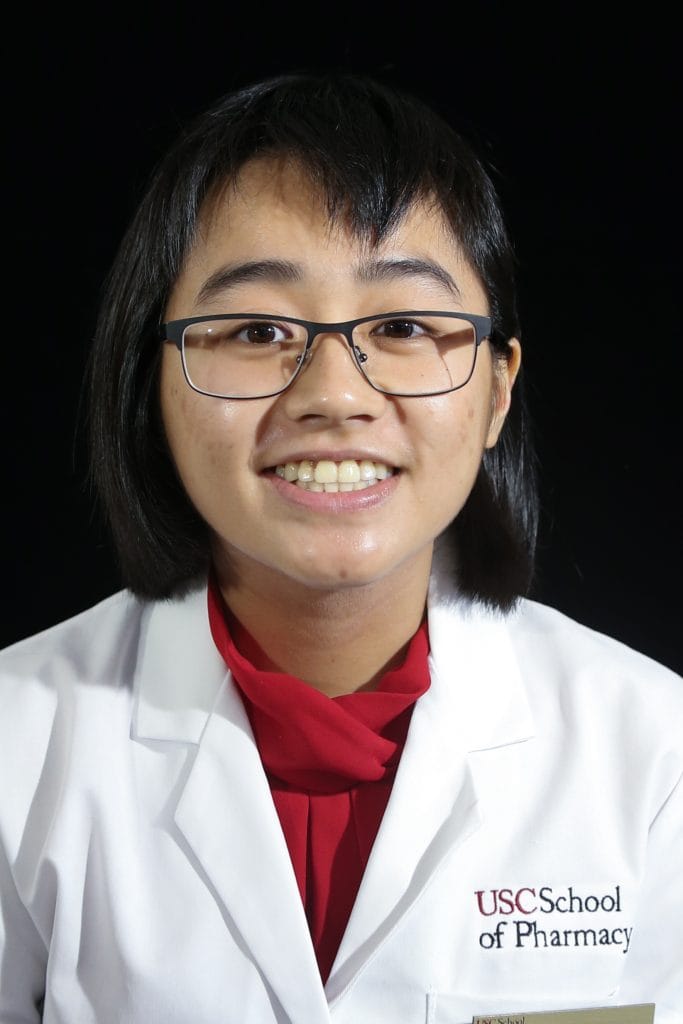 What attracted you to the field of pharmacy? Any particular moment(s) that made you stop and think, “This is the path I want to take?”
What attracted you to the field of pharmacy? Any particular moment(s) that made you stop and think, “This is the path I want to take?”
I was a pharmaceutical sciences major at UC Irvine, but it wasn’t until working as an occupational therapy volunteer with special needs children during my junior year that I truly desired to devote myself to pharmacy. Working with children all seemed very cute, but the moment that solidified my decision to pursue pharmacy was when an occupational therapist said that no matter how hard we try to help integrate the child within the community right now, he or she will still face the challenges of having physical, mental, or psychosocial limitations as a result of his or her disability. At first, I felt powerless, but in retrospect, these words actually provided a lot of hope. Witnessing the occupational therapist bridge understanding of the patients’ diagnoses inspired me to explore other venues of empowerment and treatment, namely, the medication aspect. Eventually, I realized the lifework of a pharmacist is to provide a foundation for progress and inspire others to take charge of their own lives through heartfelt counseling, optimal medication management, and collaboration on an interdisciplinary team.
Why did you choose USC School of Pharmacy?
During my fourth year at UC Irvine, I attended my first Pre-Pharmacy Day and met Dr. Susie Park. I shared with her my interest in public health and mental health and found out she was a psychiatric pharmacist. After hearing her eloquent, open dialogue addressing the impact of socioeconomic status on health and discussing different ways to coordinate intervention for vulnerable populations, I strongly felt my passions had a place at USC. I chose USC Mann because of my predisposition toward service and I felt my values aligned with the school’s unwavering commitment to decrease disparities in healthcare. I came here for USC’s principles and am staying for the people. I am very grateful to have met faculty, colleagues and upperclassmen who have gone the extra mile to help bring me a step closer toward my dreams.
As an Albert Schweitzer Fellow, you’re part of a distinguished cohort of graduate students working on community service projects that address chronic health issues. Why is the service you do important to you?
Growing up a soft-spoken only child, I was always aware that my actions spoke louder than my words; so naturally, the service I do is important to me because it is my medium for connecting with others. Now as an Albert Schweitzer Fellow, I am not only connecting with others, but also addressing a healthcare disparity in individuals with mental illness, a population that I really care about.
Can you talk about your community service project at Painted Brain?
Just a little background: Painted Brain is a community center that evaluates the impact of social injustice and constructs dynamic, interactive activities to tackle mental health challenges. I envisioned it as the perfect place, beyond clinic doors, to advocate for healthcare. At Painted Brain, I work with adults receiving mental health care and provide the following services: health education sessions pertaining to diabetes, hypertension, dyslipidemia, screenings for elevated blood pressure and blood glucose and referrals to primary care when the patients’ results warrant medical follow-up. There are higher rates of undetected and uncontrolled chronic medical conditions in individuals with mental illness — my project aims to address these health disparities.
What are your career aspirations?
My career aspiration is becoming a psychiatric pharmacist. My passion stems from my past commitment as an occupational therapy volunteer and current experience as part of USC’s College of Psychiatric & Neurologic Pharmacists (CPNP) student chapter. I am surrounded by inspiring colleagues in this organization who are changing the landscape of pharmacy and faculty who are paving the way for a new generation as we move toward whole person care. According to the World Health Organization, one out of four people will be affected by a mental illness at some point in their lives; however, the other three out of four people witness, feel and live with the effects. Psychiatric pharmacy is a field that will allow me to fulfill that unmet need for comprehensive psychological intervention and apply my interest in pharmacotherapy to a patient population I am passionate about serving. Allowing individuals to achieve full independence to be successful in their communities is the spirit and core of psychiatric pharmacy and the reason why I am relentlessly pursuing the field.


